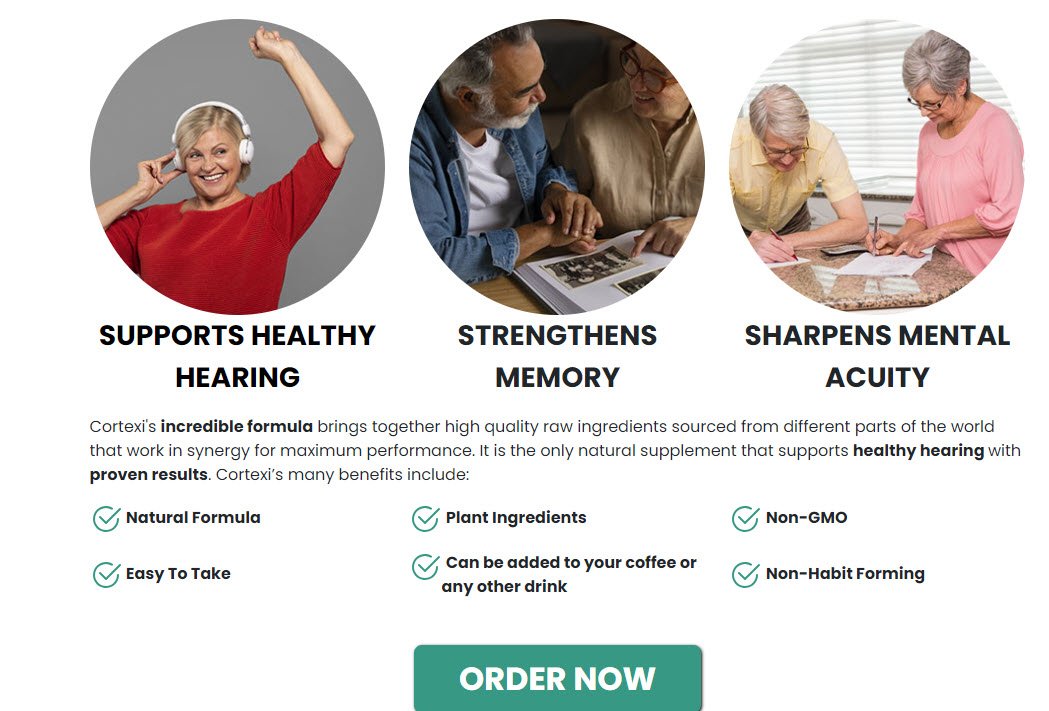Imagine being able to share your knowledge and expertise with the world, all while helping people grow and develop personally. With the rise of podcasting, this dream can become a reality. In this article, you will discover the essential steps to creating and managing a successful podcast for personal development. From choosing the right topic to engaging your audience and monetizing your content, we will guide you through the process, empowering you to make a meaningful impact and build a thriving podcasting career.
- Choosing the Right Topic
- Designing Engaging Content
- Selecting the Right Format and Equipment
- Creating Captivating Podcast Artwork
- Recording and Editing Techniques
- Optimizing Podcast SEO
- Marketing and Promoting Your Podcast
- Building a Loyal Listener Base
- Monetizing Your Podcast
- Continuous Improvement and Growth
Choosing the Right Topic
Identifying your passion or expertise
When starting a podcast, it’s crucial to choose a topic that you are passionate about or have expertise in. After all, you will be spending a significant amount of time researching, creating, and promoting content related to this topic. Identify areas that genuinely interest you or where you have valuable knowledge to share. This will not only make the whole podcasting experience more enjoyable for you but also help you connect with your audience on a deeper level.
Researching market demand and competition
While it’s important to choose a topic you’re passionate about, it’s equally essential to research the market demand and competition surrounding that topic. Look for other podcasts in your niche and analyze their popularity and engagement levels. This will give you insights into what’s already working and how you can differentiate yourself. Additionally, understand the target audience for your topic and identify whether there is a gap you can fill with your podcast.
Narrowing down your niche
To stand out in the vast podcasting landscape, consider narrowing down your niche even further. For example, if you want to start a podcast about personal development, you could focus specifically on mental health, productivity, or mindfulness. By narrowing down your niche, you can become a go-to resource for a specific subtopic and attract a more dedicated and engaged audience. Remember, going deep rather than broad often leads to greater success and impact in podcasting.
Designing Engaging Content
Defining your target audience
Understanding your target audience is crucial for creating engaging content. Take the time to define who your ideal listener is, including their age, gender, interests, and pain points. This will help you tailor your content to their needs and preferences. Conduct surveys, engage with your audience on social media, and listen to their feedback to gain insights into their desires and challenges. Designing content with your target audience in mind will ensure that your podcast resonates with them and keeps them coming back for more.
Creating an appealing podcast title
Your podcast title is often the first impression potential listeners will have, so it’s essential to make it appealing. Consider using catchy and concise titles that immediately convey the essence of your podcast. Avoid using jargon or overly complex language that might confuse or alienate your audience. A good podcast title should be memorable, descriptive, and evoke curiosity, compelling people to hit the play button.
Developing a clear episode structure
A well-structured episode is vital for keeping your listeners engaged from start to finish. Outline the key points or topics you want to cover in each episode and organize them in a logical and coherent manner. Consider incorporating segments, such as interviews, Q&A sessions, or storytelling, to add variety and maintain listener interest. Having a clear episode structure will not only make your content more enjoyable to consume but also help you stay organized during the recording and editing process.
Planning and scripting episodes
While some podcasters prefer a more spontaneous and conversational style, it’s essential to have a plan and outline for each episode. This allows you to deliver your message effectively and ensures that you cover all the important points. Prepare a script or bullet points for each episode to guide your conversation and prevent unnecessary tangents. However, don’t be afraid to let the conversation flow naturally and embrace spontaneity when opportunities arise.

Selecting the Right Format and Equipment
Deciding between solo, interview, or co-hosted format
Choosing the right format for your podcast depends on your content, personal style, and goals. Consider whether you want to have solo episodes where you share your thoughts and insights, interview guests to provide diverse perspectives, or have a co-host to engage in conversational dialogue. Each format has its pros and cons, and it’s important to choose the one that aligns with your strengths and delivers the best experience for your audience.
Investing in quality recording equipment
To ensure professional sound quality, invest in reliable recording equipment. Consider purchasing a high-quality microphone and headphones to capture clear and crisp audio. Depending on your recording environment, you may also need a pop filter to reduce plosive sounds and a microphone stand or boom arm for stability and convenience. While it may require some upfront investment, the quality of your audio is paramount in creating a successful podcast.
Exploring editing and post-production tools
Editing and post-production are essential steps in creating a polished podcast episode. Explore various audio editing software options, such as Adobe Audition, Audacity, or GarageBand, to find one that suits your needs and preferences. Familiarize yourself with basic editing techniques like cutting, trimming, and adjusting audio levels. Additionally, consider using post-production tools, such as EQ and noise reduction plugins, to enhance sound quality and provide a more enjoyable listening experience.
Considering podcast hosting platforms
When it comes to hosting your podcast, choose a reliable and reputable platform that offers features to reach a wider audience. Popular podcast hosting platforms include Libsyn, Podbean, and Anchor. Compare their pricing, storage limitations, analytics, distribution capabilities, and ease of use to find the one that best fits your needs. A good hosting platform will ensure that your podcast is easily accessible on major podcast directories and is optimized for seamless playback.
Creating Captivating Podcast Artwork
Understanding the importance of visual branding
Podcast artwork plays a significant role in attracting potential listeners and creating brand recognition. It serves as a visual representation of your podcast and should align with your content and target audience. Understand the importance of visual branding and how it can convey the essence of your podcast to potential listeners even before they hit play. Consistency in visual elements, such as colors, fonts, and graphics, helps establish a strong and recognizable brand identity.
Designing a professional and eye-catching cover
When designing your podcast cover, strive for a professional and eye-catching look. Use high-resolution images or illustrations that represent your podcast’s theme or message. Incorporate elements that help your podcast stand out, such as bold typography, intriguing visuals, or unique illustrations. Keep your cover simple and uncluttered, ensuring that it looks good even in smaller sizes on different podcast platforms.
Choosing colors, fonts, and graphics wisely
Colors, fonts, and graphics contribute to the overall aesthetics and branding of your podcast. Choose colors that evoke the right emotions and align with the tone of your content. Select fonts that are legible and reflect your podcast’s personality, whether it’s professional, playful, or adventurous. Use graphics sparingly but thoughtfully, making sure they enhance your message rather than distract from it. Consistency in these visual elements will strengthen your brand identity and make your podcast easily recognizable.
Optimizing artwork for various podcast platforms
Different podcast platforms have specific requirements and recommendations for podcast artwork. Ensure that your artwork meets the recommended dimensions and file formats to display correctly on all platforms. This includes ensuring that the text and important visuals are not cut off or distorted. Take the time to test your artwork on various podcast directories and devices to ensure a consistent and visually appealing presentation across platforms.

Recording and Editing Techniques
Setting up a suitable recording environment
Creating a suitable recording environment is essential to capture high-quality audio. Minimize background noise by choosing a quiet room and using soundproofing techniques if necessary. Consider using acoustic treatment like foam panels or diffusers to reduce echo and reflections. Before recording, test your setup and adjust microphone positions and audio levels to ensure optimal sound quality. A well-prepared recording environment sets the foundation for a professional-sounding podcast.
Using audio editing software effectively
Audio editing software allows you to refine your recordings and create a seamless episode. Learn to use your chosen editing software effectively by familiarizing yourself with its features and functions. Use editing techniques such as removing background noise, improving audio clarity, and enhancing certain parts like intros or interviews. Be mindful of not over-editing and preserving the natural flow and authenticity of your conversations.
Improving sound quality and reducing background noise
Sound quality is crucial for creating an enjoyable listening experience. Apart from setting up a suitable recording environment, there are additional steps you can take to improve sound quality. Use a pop filter or windscreen to reduce plosive sounds and harsh breaths. Experiment with microphone positions and distances to find the optimal balance between warmth and clarity. Additionally, invest in good headphones to monitor and catch any imperfections or background noise during recording.
Adding intros, outros, and background music
Intros, outros, and background music can add a professional touch and enhance the engagement of your podcast episodes. Create a catchy and concise intro that captures the essence of your podcast and provides a preview of what’s to come. Craft an outro that encourages listeners to take action, such as subscribing, leaving reviews, or visiting your website. Consider adding suitable background music to set the tone and create a pleasant listening experience. However, ensure that the music does not overpower the dialogues or violate copyright laws.
Optimizing Podcast SEO
Researching relevant keywords and topics
To attract more listeners, optimize your podcast episodes for search engine optimization (SEO). Start by researching relevant keywords and topics that resonate with your target audience and have high search volume. Tools like Google Keyword Planner, Ubersuggest, or KeywordTool.io can help you identify popular keywords related to your podcast’s niche. Incorporate these keywords naturally into your episode titles, descriptions, and show notes to increase your podcast’s visibility on search engines and podcast directories.
Crafting compelling episode titles and descriptions
Crafting compelling episode titles and descriptions is key to capturing the attention of potential listeners. Use attention-grabbing titles that clearly communicate the value and relevance of your content. Ensure that your episode descriptions provide a concise summary of what listeners can expect while also enticing them to click play. Incorporate relevant keywords strategically to optimize your podcast’s discoverability and entice search engine users to explore your episodes further.
Utilizing show notes and timestamps
Show notes provide additional information and context to complement your podcast episodes. Include timestamps in your show notes to highlight key segments or topics discussed in each episode. This allows listeners to easily navigate to sections that interest them the most. Show notes also serve as written content that search engines can index, further improving your podcast’s visibility and discoverability.
Applying SEO best practices for podcast platforms
Different podcast platforms have their own SEO best practices that you should follow to optimize your podcast’s visibility. Pay attention to platform-specific guidelines on episode titles, descriptions, tags, and categories. Customize your podcast metadata on each platform to ensure consistency and maximize your chances of being found by potential listeners. Applying SEO best practices for podcast platforms will help increase your podcast’s visibility and attract more organic traffic.

Marketing and Promoting Your Podcast
Creating a podcast website or landing page
A podcast website or landing page serves as a central hub for your podcast and provides a platform to promote your episodes. Create a visually appealing and user-friendly website that aligns with your podcast’s branding. Include essential information like episode summaries, guest bios, and subscription options. Optimize your website for search engines by incorporating relevant keywords, meta descriptions, and providing easy navigation to your episodes. Additionally, consider adding a blog section to engage with your audience through written content related to your podcast’s topics.
Leveraging social media platforms for promotion
Social media platforms provide a powerful means to reach and engage with your target audience. Create dedicated social media accounts for your podcast and regularly share updates, episode releases, and behind-the-scenes content. Engage with your followers by responding to comments and messages, and encourage them to share and recommend your podcast. Utilize features like Instagram stories, live videos, or Twitter chats to create a sense of community and foster deeper connections with your audience.
Guesting on other podcasts and cross-promotion
Collaborating with other podcasters through guest appearances or cross-promotion can significantly expand your listener base. Identify podcasts in your niche or related areas and reach out to the hosts for collaborative opportunities. Guesting on other podcasts allows you to showcase your expertise and introduce yourself to new audiences. Additionally, consider inviting guest experts to appear on your podcast and leverage their existing audience to cross-promote your episodes and broaden your reach.
Utilizing email marketing and newsletters
Email marketing and newsletters are effective tools for nurturing and engaging with your podcast audience. Encourage listeners to subscribe to your email list or newsletter through your podcast website or social media platforms. Send regular updates about new episodes, exclusive content, and other valuable resources related to your podcast’s topics. Provide additional incentives like discounts, freebies, or bonus content for subscribers to strengthen their loyalty and encourage them to share your podcast with others.
Building a Loyal Listener Base
Engaging with your audience through comments and feedback
Take the time to engage with your audience by responding to comments and feedback. Encourage listeners to leave comments or reviews on podcast directories and social media platforms. Show genuine interest in their thoughts and opinions, and make an effort to respond promptly. This not only encourages listener loyalty but also helps you better understand your audience’s needs and preferences, allowing you to continually improve your podcast and create content that resonates with them.
Encouraging listener participation and Q&A sessions
Promote listener participation by inviting them to submit questions, share personal stories, or suggest topics for future episodes. Encourage them to interact with you through social media platforms, email, or dedicated Q&A sessions. Incorporate listener questions and feedback into your episodes to create a sense of community and make them feel valued. By involving your audience in the podcasting process, you foster a deeper connection and build a loyal listener base.
Offering exclusive content and bonuses for subscribers
Reward your loyal listeners by offering exclusive content or bonuses for subscribers. This could include bonus episodes, access to behind-the-scenes footage, or downloadable resources. By providing additional value to your subscribers, you give them a compelling reason to stay engaged and support your podcast. Exclusive content also encourages listeners to subscribe, creating a sense of exclusivity and fostering a committed community of supporters.
Organizing virtual or live events for community building
Organize virtual or live events to further engage with your podcast community. This could include hosting live Q&A sessions, panel discussions, or virtual workshops related to your podcast topics. Choose platforms that allow real-time interaction and provide opportunities to connect with your audience. Live events not only strengthen the bond between you and your listeners but also provide a platform for your audience to connect with each other and form meaningful relationships.
Monetizing Your Podcast
Exploring sponsorship and advertising opportunities
As your podcast grows in popularity, you can explore sponsorship and advertising opportunities. Approach relevant brands or companies that align with your podcast’s niche and target audience. Offer sponsorship packages that include mentions, ad spots, or dedicated episodes featuring their products or services. Additionally, consider joining podcast advertising networks that connect podcasters with potential advertisers. However, ensure that any sponsorship or advertising aligns with your podcast’s values and doesn’t compromise the trust of your audience.
Setting up a Patreon or crowdfunding campaign
Patreon and other crowdfunding platforms provide a way for your loyal listeners to support your podcast financially. Create different tiered subscription options on Patreon that offer exclusive perks based on different levels of support. This could include early access to episodes, bonus content, or personalized shout-outs. Crowdfunding campaigns can also be used to fund specific projects or cover production costs. Make sure to express your gratitude and provide regular updates to your patrons to maintain their support and trust.
Creating premium content or merchandise for sale
Consider creating premium content or merchandise that your listeners can purchase. This could include e-books, online courses, or physical products like personalized merchandise or branded merchandise. Premium content or merchandise allows you to monetize your expertise and provide additional value to your audience. Ensure that the quality of your premium offerings matches the expectations of your audience and reinforces the trust they have in your podcast.
Offering coaching, consulting, or courses
If you have in-depth knowledge or experience in your podcast’s niche, you can offer coaching, consulting, or courses. Create packages that cater to the specific needs and desires of your audience. This could involve one-on-one coaching sessions, group consulting sessions, or online courses that provide actionable insights and strategies. Position yourself as an expert in your field and emphasize the personalized attention and guidance you offer. Monetizing your expertise allows you to create a sustainable income stream while making a meaningful impact on your audience’s personal development.
Continuous Improvement and Growth
Analyzing podcast analytics and listener feedback
To continuously improve your podcast, analyze podcast analytics and listen to listener feedback. Pay attention to metrics like total downloads, listener retention, and engagement levels across different episodes. Identify episodes or topics that resonate particularly well with your audience and replicate their success. Actively seek feedback through surveys, social media polls, or direct communication with your listeners. Analyzing data and feedback allows you to make informed decisions and refine your podcasting strategies for long-term growth.
Adapting to trends and evolving audience preferences
Podcasting is a constantly evolving medium, and it’s important to stay abreast of trends and changes in the industry. Monitor emerging topics, formats, or technologies that align with your podcast’s niche. Be open to experimenting with new ideas and adapting your content to meet evolving audience preferences. By keeping up with trends and evolving alongside your audience, you demonstrate your commitment to providing relevant and valuable content.
Collaborating with other podcasters and industry experts
Collaborating with other podcasters and industry experts can help expand your network and bring fresh perspectives to your podcast. Seek opportunities to collaborate on episodes, panel discussions, or joint projects that benefit both parties. Engage in meaningful conversations with fellow podcasters or industry experts through interviews or guest appearances. By collaborating with others, you tap into their audience base and expose your podcast to new listeners who share similar interests.
Consistently seeking self-improvement and learning
Podcasting is a continuous learning process, and it’s crucial to consistently seek self-improvement and acquire new skills. Stay updated with the latest podcasting techniques, trends, and industry developments through workshops, webinars, or podcasts dedicated to podcasting. Expand your knowledge in areas like storytelling, interview techniques, audio editing, and marketing. By investing in your own personal and professional growth, you can ensure that your podcast remains relevant, engaging, and impactful.
Creating and managing a successful podcast for personal development requires careful consideration of various aspects, from choosing the right topic to continuously improving and growing. By understanding your audience, creating engaging content, utilizing effective marketing strategies, and staying open to learning, you can cultivate a loyal listener base and make a meaningful impact in the podcasting world. With dedication and a genuine passion for your chosen topic, you can embark on a rewarding podcasting journey that inspires and supports personal development for yourself and your listeners.







